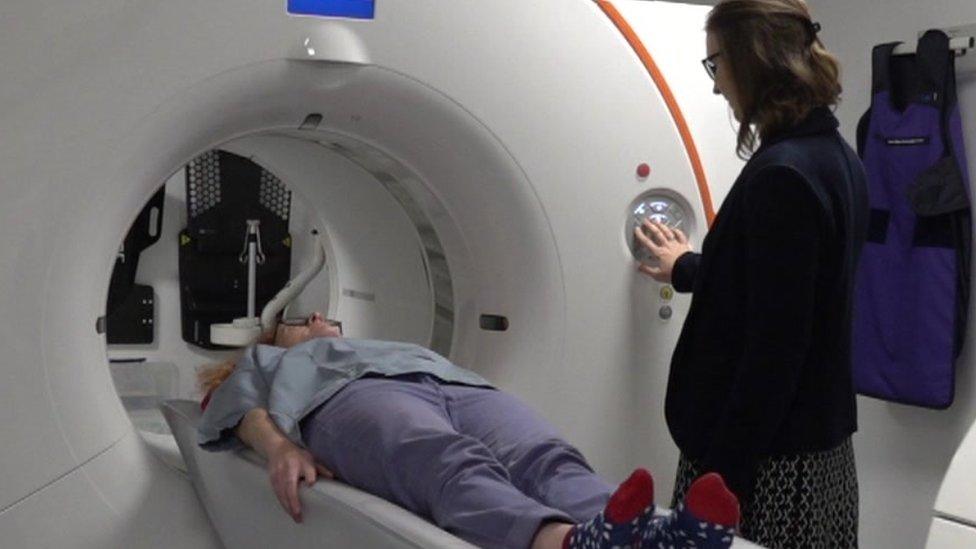University of Exeter receives £7m for women's health research
- Published

Prof Anna Murray said part of the research was looking for new genetic links to improve future treatment options
The University of Exeter has been awarded a series of grants to boost research into women's reproductive health.
The £7m funding will help researchers progress areas that have been "under-studied globally", said the university.
This includes menopausal symptoms, hormonal imbalances and reproductive ageing.
Prof Anna Murray said: "Long-term funding for our research will enable us to really drive forward discoveries."
The professor of human genetics at the university's medical school said this was fundamental to finding new treatments.
She said she was working with universities in London to "further research into reproductive conditions such as infertility and polycystic ovary syndrome".
Prof Murray is also working with the University of Melbourne and the University of Bristol looking at the menopause symptoms of more than 700,000 women.
'Make a real difference'
Dr Katherine Ruth is leading the health-pm project and she said it would help investigate the impact of hormonal changes across life on health after menopause.
"Given the possibility for modifying hormone levels with existing therapies, this offers the potential to benefit the health of half of the ageing population," she said.
Dr Gemma Sharp, associate professor at the university, said the funding would "make a real difference to the lives of many women".
She said: "Women's health research has been historically underfunded, despite the huge impact that reproductive health can have on women's quality of life.
"International Women's Day is a great opportunity to reflect on that and look forward to improved treatment options in the future.
"It's also important to see Exeter leading the charge on these significant studies and establishing itself as a potential global leader in women's health studies."
Funding of £5.6million has come from a Wellcome Trust Discovery Award, with £800,000 from the Medical Research Council, and £1.2m from UK Research and Innovation under the government's Horizon Europe funding guarantee.

Follow BBC Devon on X (formerly Twitter), external, Facebook, external and Instagram, external. Send your story ideas to spotlight@bbc.co.uk, external.
Related topics
- Published6 March 2024

- Published27 December 2023

- Published3 October 2023
